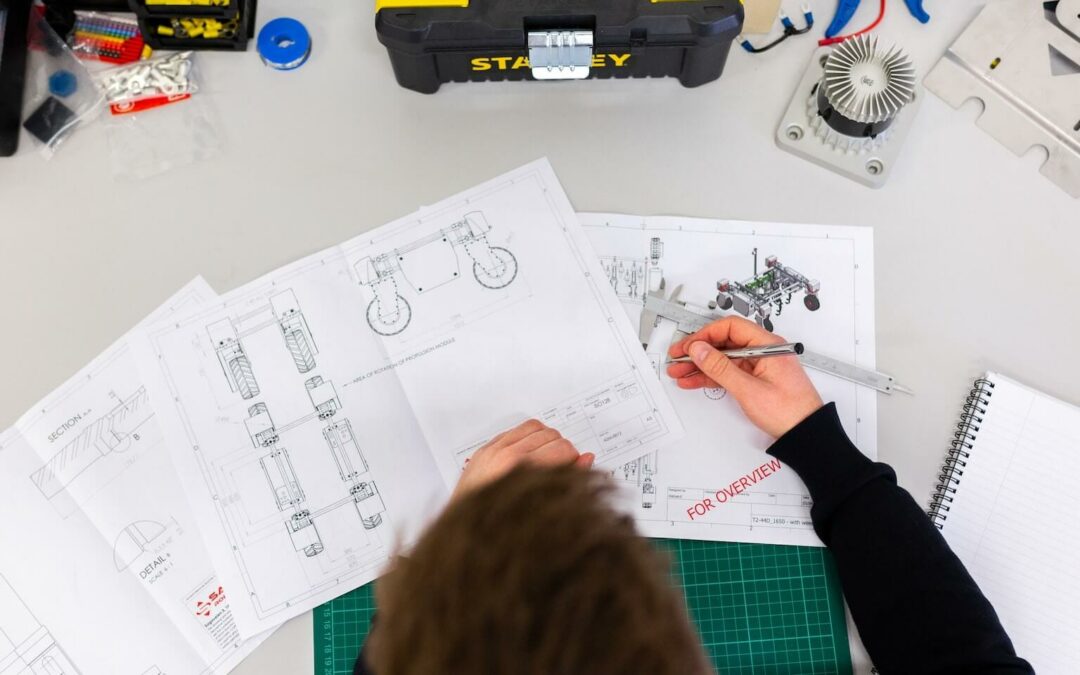Pre-hire assessments (also called pre-employment tests) are often marketed as a way to speed up the recruitment process and reduce the chances of making a bad hire. Some pre-hire tests measure personality traits or ask ethical questions. Others, like skills assessments and aptitude tests, are more focused on skills.
In our 20+ years of helping employers accurately assess the skills of their workforce, we’ve noticed some confusion around aptitude tests and skills assessments. While both relate to skills, they are not interchangeable. Let’s take a closer look at aptitude tests, what they measure, their drawbacks, and if they can help predict job performance.
What Do Aptitude Tests Measure?
Sometimes called “cognitive ability” tests, aptitude tests measure how well someone is likely to perform in an area where they have no prior training. They measure the potential to learn a skill or an affinity for broader disciplines like numerical reasoning or mechanics.
You’re probably familiar with some well-known aptitude tests.
- The Scholastic Assessment Test (SAT) and American College Testing Exam (ACT) are standardized aptitude tests that measure skills needed for postsecondary education.
- The Armed Services Vocational Aptitude Battery (ASVAB) determines if someone is qualified to enlist and helps to assign them an appropriate job within the military.
Some auto mechanic schools use mechanical aptitude tests to help with admission. Most questions deal with mechanical comprehension or how well a test taker understands basic physics principles and mechanical concepts like levers, springs, pulleys, gravity, acceleration, weights, magnetism, and energy types.
Drawbacks of Aptitude Testing
Aptitude Tests Don’t Require Specialized Skills or Knowledge
The important thing to remember about aptitude tests is that they measure someone’s academic potential or career suitability. They don’t require specialized knowledge or experience and they do not measure someone’s technical skill level. Aptitude tests are most often used in situations where additional training or learning will occur—like a high school student applying to college or an auto mechanic school.
For example, the ASVAB Testing program does not endorse any particular method of test preparation beyond recommending test takers have a solid core of mathematics, English, and science classes in high school or college.
Aptitude Tests Are Not Designed to Measure Current Skills
Aptitude tests measure someone’s potential to learn a new skill set. They evaluate general knowledge and are designed to discover someone’s baseline knowledge.
An employer looking to hire an industrial maintenance mechanic will not accurately understand a candidate’s current skills using a mechanical aptitude test. While the results might offer a few insights into general knowledge, it’s unlikely to measure more technical skills like reading blueprints or analyzing test results and machine error messages to diagnose equipment problems.
“Aptitude Test” Has Become a Generalized Term
Perhaps because of their long history of assessing academic potential or career suitability, aptitude tests have become a generalized term that doesn’t always describe what an HR professional may be looking for.
From 1900 to about 1932, high school tests, vocational tests, and athletic assessments began to be used in statewide testing programs. In 1914, the National Education Association endorsed standardized testing for students and during World War I, the U.S. used testing to help assign service members to suitable jobs within the military. In 1926, the College Board created the Scholastic Aptitude Test (SAT), and by the end of World War II, it had become a staple for high school students who wanted to attend college.
Now, there is a misconception that aptitude tests can also help employers hire skilled workers. For certain roles, situational judgment aptitude tests could help determine communication styles or how someone might work as part of a team. But these tests are more commonly used in customer service or sales-related positions. Their use is limited when employers are trying to fill specific positions like industrial maintenance mechanics, industrial electricians, or diesel mechanics.
Do Aptitude Tests Predict Job Performance?
Aptitude tests can be a useful tool for measuring general knowledge or the potential of learning a new skill set. Aptitude tests are commonly used to determine if a candidate will likely be successful in an apprenticeship program. However, they typically do not work well when evaluating candidates for open job positions that require specialized knowledge or technical skills.
A skills assessment offers an alternative to aptitude tests. These assessments are tightly focused on a specific skill or job, giving employers direct insight into a candidate’s qualifications. High-quality skills assessments, especially those based on industry standards, are an objective and accurate method of measuring candidates’ skills. Aberdeen Group found that companies that use skills assessments are 24% more likely to have employees who exceed performance goals.
Accurately Evaluate Skills with NBS
Before investing in any pre-employment test, you want to make sure this tool will actually help you hire qualified candidates more efficiently and reliably. Perhaps the most relevant question to ask is, “does this assessment measure relevant skills and will it accurately predict job performance for the job I am hiring for”?
Nocti Business Solutions works with companies of all sizes to build competent workforces. We do this by helping employers accurately measure candidates’ specific skills and knowledge. Our library of 200+ technical and employability skills assessments enables our clients to gain unique insight into candidates and more accurately predict future job performance.
We take a deeper dive into personality and aptitude tests in our Pre-Hire Assessment Guide (a free download when you provide your email address). In the meantime, let us know if you have any questions or if we can help you build a skilled workforce.

Recent Comments